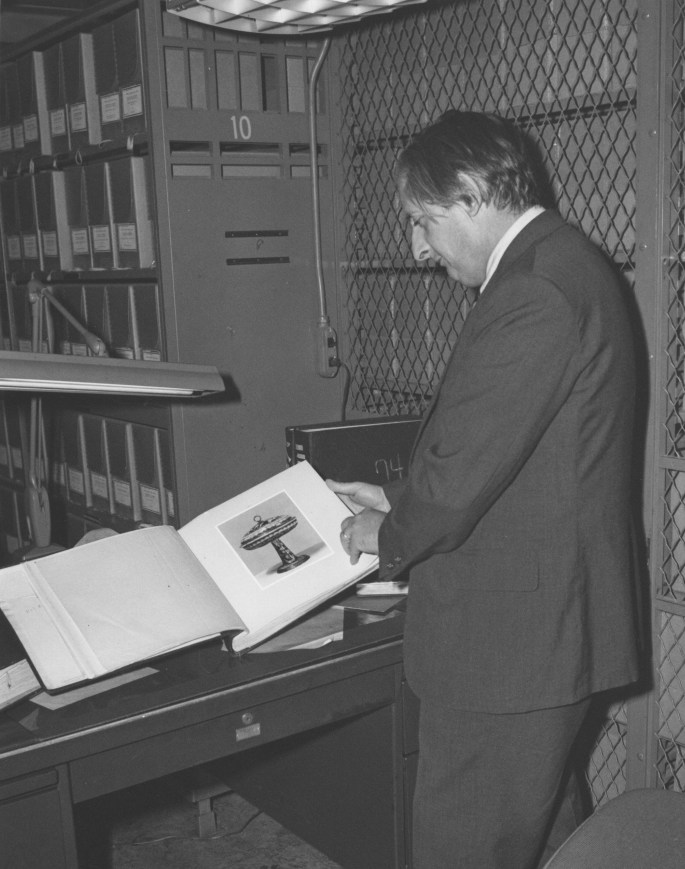We are taking a look at past staff and their many contributions to the National Archives throughout history. Today’s staff spotlight is on John Mendelsohn, who was the National Archives expert on records related to the Holocaust and the Nuremberg Trials.

John Mendelsohn was born on October 19, 1928, in Berlin, Germany. Growing up in Nazi Germany, he faced anti-Semitism and discrimination because his father, Hans Eduard Mendelsohn, was Jewish. In 1938 Hans, who was a journalist, was arrested and sent to Buchenwald concentration camp in Weimar, Germany. Hans was able get out and emigrate to England in 1939, but by then John—and the rest of the family—wasn’t able to leave Germany.
John Mendelsohn spent World War II living in Berlin, but after his mother and grandmother passed away, he came to the United States. Sponsored by a Jewish family, Mendelsohn moved to Ohio in 1952 and joined the United States Air Force, where he served two stints, finally separating in January 1961. While in the military, he became a naturalized American citizen.
Before coming to the National Archives, he earned a BA and MA in history from the University of Maryland, and he started work on a PhD in history. He also worked in the German Department at Augusta Military Academy in Fort Defiance, VA, and taught some German classes at American University in Washington, DC.
In November 1970, the National Archives hired Mendelsohn for a part-time position in the Research Room. He soon applied for an archivist position in the Captured Records Branch of the Military Archives Division. The Branch Chief at that time, Robert Wolfe, was initially hesitant to hire Mendelsohn because he didn’t have academic training in 20th-century Germany. Wolfe also questioned Mendelsohn’s ability to be objective while working with records of the Nazis—the very people who had persecuted him and his family.
Despite these reservations, Wolfe hired Mendelsohn, and he joined the Captured Records Branch in February 1971. The move paid off, and during his National Archives career, Mendelsohn became an expert on the records of the Nuremberg Trials, other war crimes trials, and on sources related to the Holocaust. In 1974 he finished his dissertation on the Nuremberg Trials and then went on to write numerous articles, give countless lectures, and aid a long list of students, professors, historians, and journalists with their World War II–era research projects.

In the late 1970s and early 80s, Mendelsohn served as the Assistant Branch Chief for Projects in the Washington National Record Center at Suitland, Maryland. There he coordinated a joint National Archives–German archives project to inventory and microfilm records of the postwar American occupation of Germany.
He also edited an 18-volume documentary series, The Holocaust: Selected Documents. The 1982 publication was a massive collection of original sources in the National Archives related to the Holocaust. Each volume contained facsimiles of records of the Holocaust from 1933 to 1945—the full set had over 330 documents in over 5,200 pages.
He was also board member of the National Archives Assembly—the agency’s employee association—and served as the chair of its Training and Professional Development Committee.
Mendelsohn was in the process of editing an 18-volume facsimile series of primary documents on U.S. intelligence during World War II when on April 19, 1986, he passed away of respiratory failure. He was 57.
May is Jewish American Heritage Month. Visit the National Archives website for more information on our resources related to Jewish American history.
